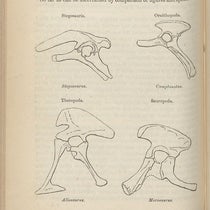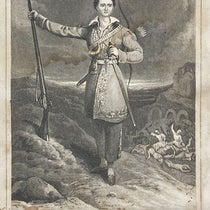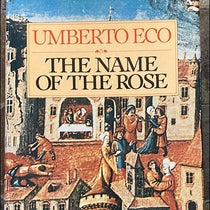Scientist of the Day - George Ord
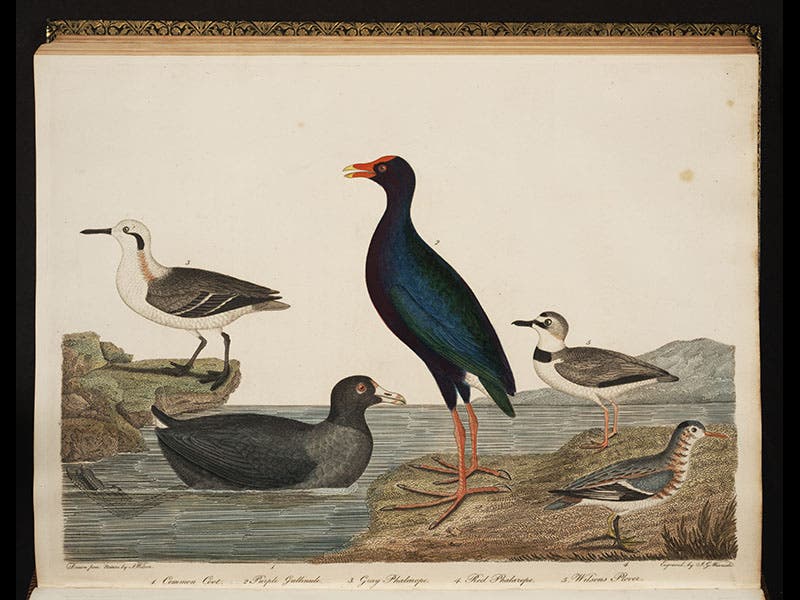
Linda Hall Library
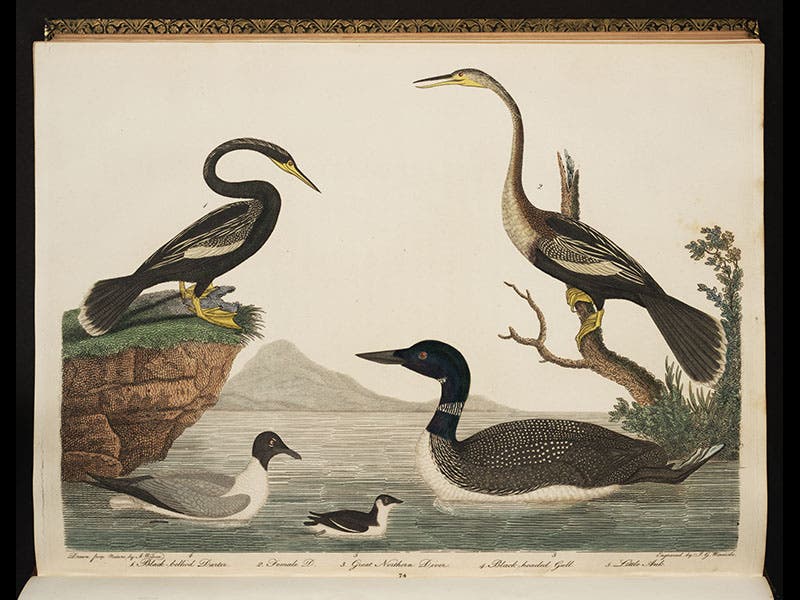
Linda Hall Library
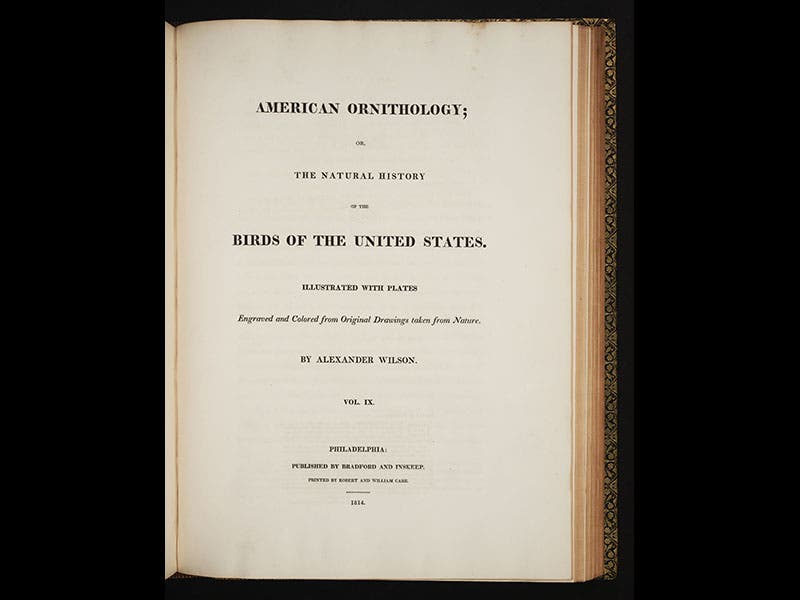
Linda Hall Library
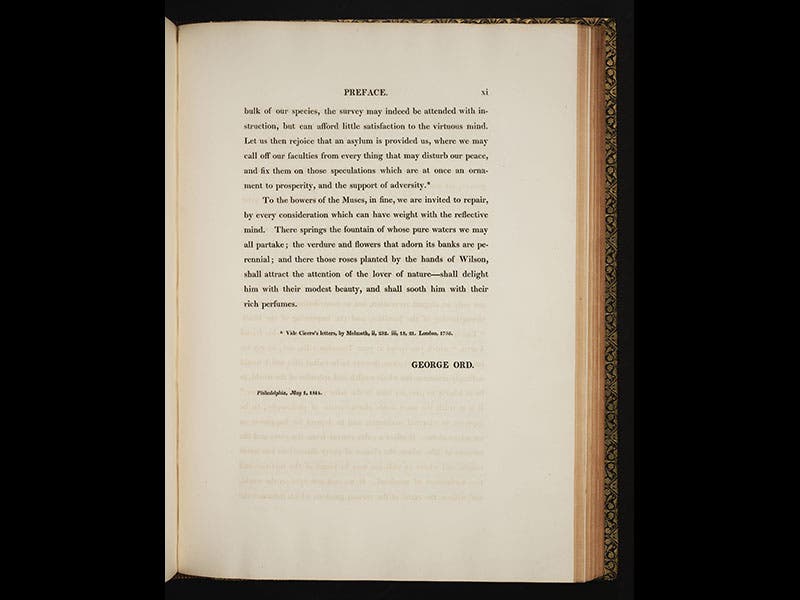
Linda Hall Library
George Ord, an American naturalist, died Jan. 24, 1866, at the age of about 85; his date of birth is unknown. Ord lived in Philadelphia and was a prominent member of the two great scientific societies of Philadelphia, the American Philosophical Society and the Academy of Natural Sciences. He was also a friend of the early American ornithologist, Alexander Wilson, and when Wilson died of overwork before finishing his 9-volume American Ornithology, Ord stepped in and saw the last volumes through the press. He wrote many of the descriptions in the final volume himself, and he even took the opportunity to name a specimen after his hero: Wilson's plover. The plate depicting Wilson’s plover and other water birds is reproduced above (first image; the plover, with a white neck ring, is at the right). We also display another plate from this volume, which includes two American darters (anhingas), a Northern diver (loon), and an auk (second image).
So when the upstart John James Audubon appeared on the scene after Wilson died and claimed to be a much better painter of birds, Ord's hackles rose. He defended Wilson and deprecated Audubon at every opportunity, and since he lived until 1866 and never changed his low opinion of Audubon, this lasted for a long time. He famously called Audubon an “impudent pretender” and declared that most of his descriptions and personal observations were outright fabrications. He even managed to thwart Audubon’s attempt to become a member of the Philadelphia Academy. Somehow, Ord became friends with Charles Waterton, the eccentric British traveler who collected specimens in South America and then set up the world's first nature preserve back in England at his estate at Walton Hall. The two conspired against Audubon for years; their conniving is documented in correspondence between the two that is preserved in the archives of the American Philosophical Society.
Although Ord is best known for his acrimonious antipathy to Audubon, he was certainly generous to a fault with Wilson, whom he obviously admired beyond measure. So that he might take nothing away from Wilson’s reputation, Ord refused to allow his name to be added to the title pages of the volumes of the American Ornithology that he edited (third image); the only place his name appears is at the end of the preface to volume 9 (fourth image). This modesty carried over to a venture with which Ord is hardly ever associated, because Ord made every attempt to conceal it. In 1815, an American edition was published of William Guthrie’s A New Geographical, Historical, and Commercial Grammar, to which were added several appendices, one of these being a 70-page section, “The Zoology of North America.” This is an amazing compilation, with a list of every known mammal and bird of North America, followed by a one-paragraph (at least) description of each species. This book thus contains the very first printed account of the complete North American fauna as then known. There is no mention of the author in the printed volume, although the editor stated that he wanted to do so but was prevented by the author. It is has been indubitably established that Ord was that author. The 1815 edition of Guthrie's Commercial Grammar—the only one to contain the “North American Zoology”—is incredibly scarce; hardly any library has a copy, even in Philadelphia, but fortunately, a George Ord fan, Samuel Rhoads, secured one in 1890, and he had the “Zoology” section reset and printed, calling his book: A Reprint of the North American Zoology, by George Ord (1894). Happily, we have this work in our History of Science Collection. It also contains the first printed portrait of Ord, in black and white, based on the original oil at the American Philosophical Society; we show the original above (fifth image).
Dr. William B. Ashworth, Jr., Consultant for the History of Science, Linda Hall Library and Associate Professor, Department of History, University of Missouri-Kansas City. Comments or corrections are welcome; please direct to ashworthw@umkc.edu.

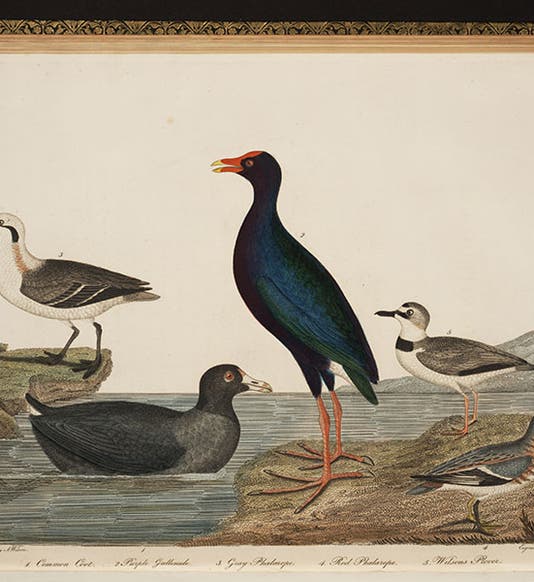
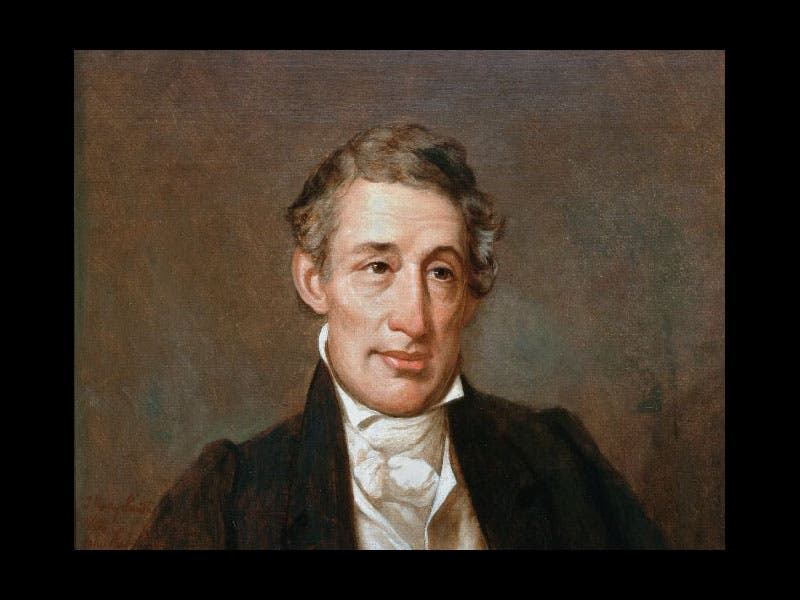
![Columbine, hand-colored woodcut, [Gart der Gesundheit], printed by Peter Schoeffer, Mainz, chap. 162, 1485 (Linda Hall Library)](https://assets-us-01.kc-usercontent.com:443/9dd25524-761a-000d-d79f-86a5086d4774/3829b99e-a030-4a36-8bdd-27295454c30c/gart1.jpg?w=210&h=210&auto=format&fit=crop)
